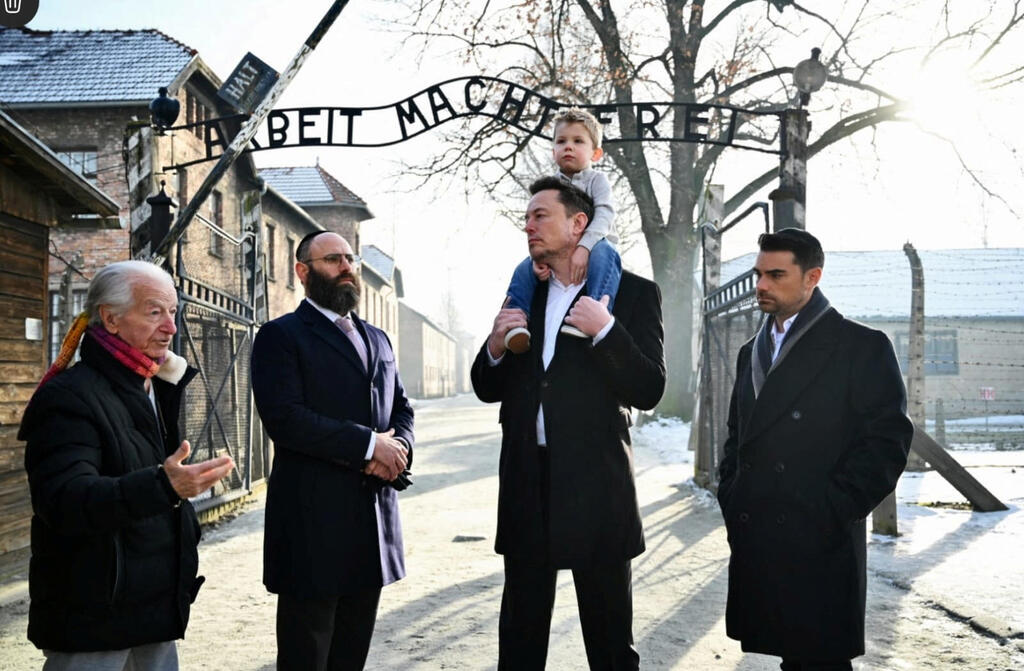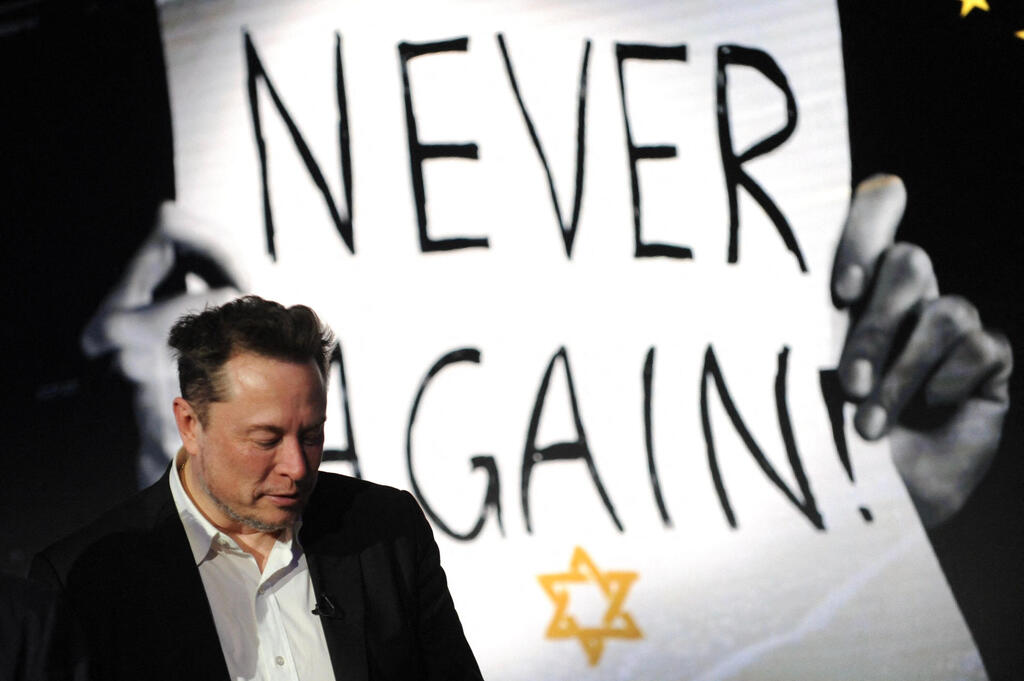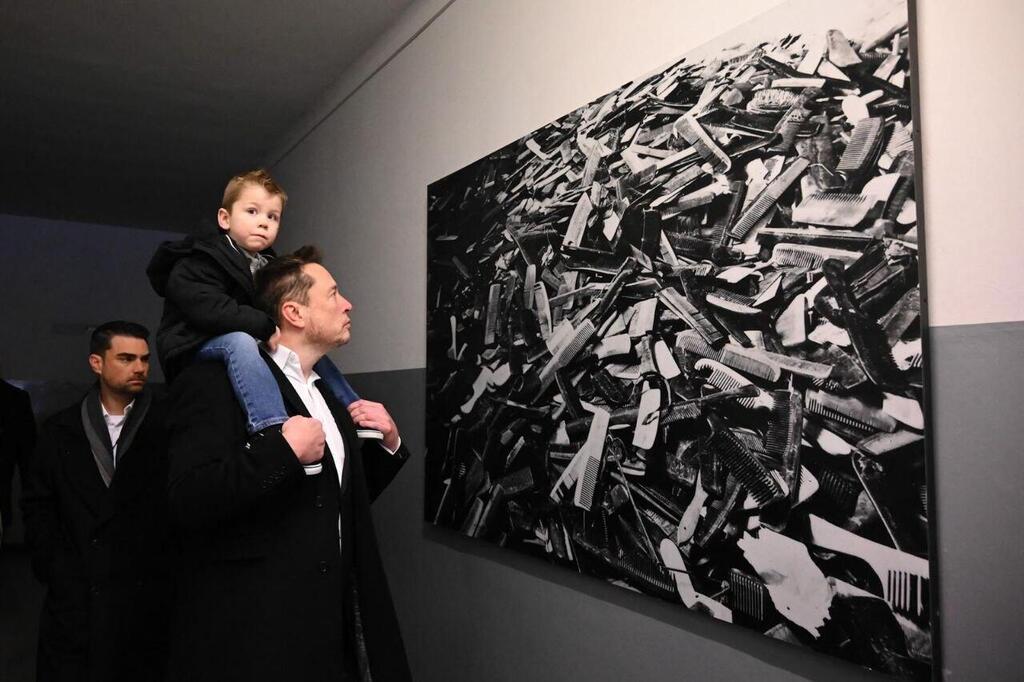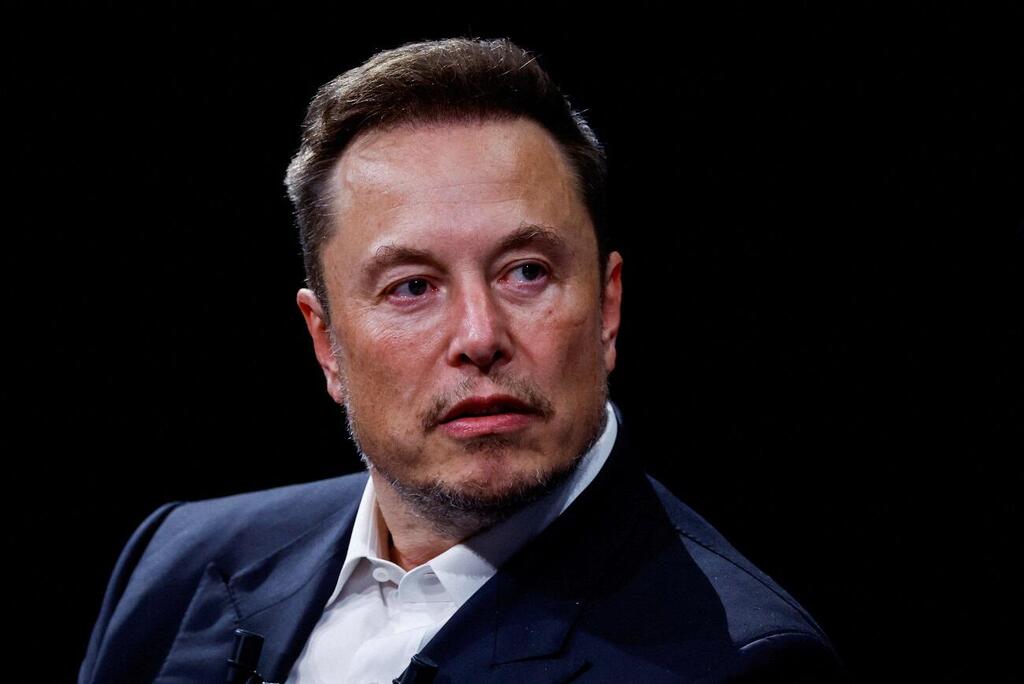Tech billionaire Elon Musk visited the Auschwitz-Birkenau concentration and extermination camp on Monday for the first time as his social media platform X (formerly Twitter) is facing accusations of allowing the spread of antisemitic content.
More stories:
“It’s deeply sad and tragic [that] humans could do this to other humans,” Musk told a conference of the European Jewish Association (EJA), which he attended after his visit to the former Nazi death camp.
Musk visited Auschwitz, carrying his 3-year-old son X Æ A-Xii on his shoulders, accompanied by Rabbi Menachem Margolin, an influential leader of European Jewry, conservative Jewish-American pundit Ben Shapiro and Holocaust survivor Gideon Lev.
"Musk laid a wreath at the wall of death and took part in a short memorial ceremony and service by the Birkenau memorial," an EJA spokesman said.
During the event, Margolin presented Musk with a sculpture made by an artist from the fragments of a rocket fired at a kindergarten in southern Israel’s Kibbutz Be'eri - a symbol of the phrase "Never Again" - and displayed fictional tweets written by Jews to stop their extermination by the Nazis.
"If we had Twitter in 1939, how many lives would it have saved?" Margolin pondered. Musk responded that if social networks had existed during the Holocaust, "it would have been impossible to hide."
Musk said that the Nazis initially focused on muzzling the media and blocking the spread of information. He highlighted the significance of the First Amendment to the U.S. Constitution, which guarantees freedom of speech.
Musk pointed out that immigrants to the U.S. often came from places lacking this freedom, where speaking out could lead to death. The First Amendment, he emphasized, ensures that everyone can express themselves without fear of imprisonment or death.
The controversial billionaire, who visited Israel in November in an apparent attempt to shake off accusations of antisemitism, shared his experiences, "I watched many videos. It was amazing to see. The most shocking was witnessing the murder of defenseless children and women. There was no mercy, quite the opposite. The source of the indoctrination they underwent needs addressing. No one should be happy after killing children."
Musk presented a dog tag he was wearing, calling for the release of Israeli hostages held in Gaza, which he received during his visit to Israel, stating he would continue to carry it until their release.
Musk expressed his astonishment at the anti-Israel protests in the U.S. and Europe after the Gaza war. He was particularly struck by the large-scale pro-Hamas rallies in major Western cities, including prestigious universities like Harvard, Yale, and Penn. Musk found it hard to believe, especially since these places are expected to be centers of enlightenment. He viewed the unrest in cities and on campuses as a significant wake-up call, underlining its shock value for enlightened individuals and respectable cultures.
Musk stressed the importance of discarding the belief that the weaker side is always justified, pointing out the flawed nature of such a viewpoint. He argued for moral clarity, asserting that intentions to harm, regardless of a group's size, categorize them as evil. He emphasized judging groups and individuals by moral standards, rather than simply viewing them through a lens of oppressor versus oppressed, and highlighted that targeting innocent people is unequivocally evil.
Shortly before his visit to Israel, Musk sparked controversy by supporting an X user who claimed that the Jewish communities promote hatred against whites, and responding, "You have said the actual truth." He later apologized for the tweet, admitting it was "the worst and most stupid I ever wrote," but did not delete it as he had done with other controversial tweets in the past.
In recent months, Musk launched an unprecedented attack against the Anti-Defamation League (ADL), one of the most prominent and longstanding Jewish organizations worldwide. The ADL had claimed that antisemitism on X soared by 919% following the Gaza war.
Companies such as Apple, Disney, IBM and Warner Bros. Discovery decided to freeze their advertising on X by the end of 2023 after their ads were displayed alongside antisemitic and pro-Nazi content.
TikTok has more antisemitism
“The circles that I move, I see almost no antisemitism,” Musk said in his defense, adding that he attended a Jewish school as a child in South Africa. “Two-thirds of my friends are Jewish. I’m Jewish by association, aspirationally Jewish. I never hear about it at dinner conversations; it’s an absurdity in my friend circles. But looking at the pro-Hamas rallies that have taken place at almost every city in the West, it’s blown my mind.”
Musk described his name as distinctly Jewish, even “super-Jewish”, recalling a visit to Israel and Masada at the age of 13. He said he would often contemplate his Jewish identity, concluding that he aspires to be Jewish.
Additionally, he sought to protect X's image, which has turned into a breeding ground for false allegations against Israel since the outset of the Gaza war. He acknowledged the presence of antisemitism on the platform, albeit less than on others like TikTok, but admitted that completely eliminating it is an unrealistic expectation.
At the conference, the European Leaders Forum for Combating Anti-Semitism was launched, led by former Israeli president Reuven Rivlin. The forum includes former European heads of state: ex-Austrian chancellor Sebastian Kurz, former French prime minister Manuel Valls, former Italian prime minister Matteo Renzi, former Bulgarian president Petar Stoyanov, among others. The forum aims to strengthen legislation against hate speech, collaborate with universities known for harboring anti-Jewish and anti-Israel sentiments and work with soccer clubs and sports institutions.
Rabbi Margolin outlined the forum's priorities: creating or tightening existing legislation covering hate speech using the International Holocaust Remembrance Alliance’s definition of antisemitism as a standard, working with deans and rectors at universities to combat antisemitism and anti-Zionism on campuses, and engaging with top-tier soccer clubs and other sports institutions to promote antisemitism-free environments in their venues.





